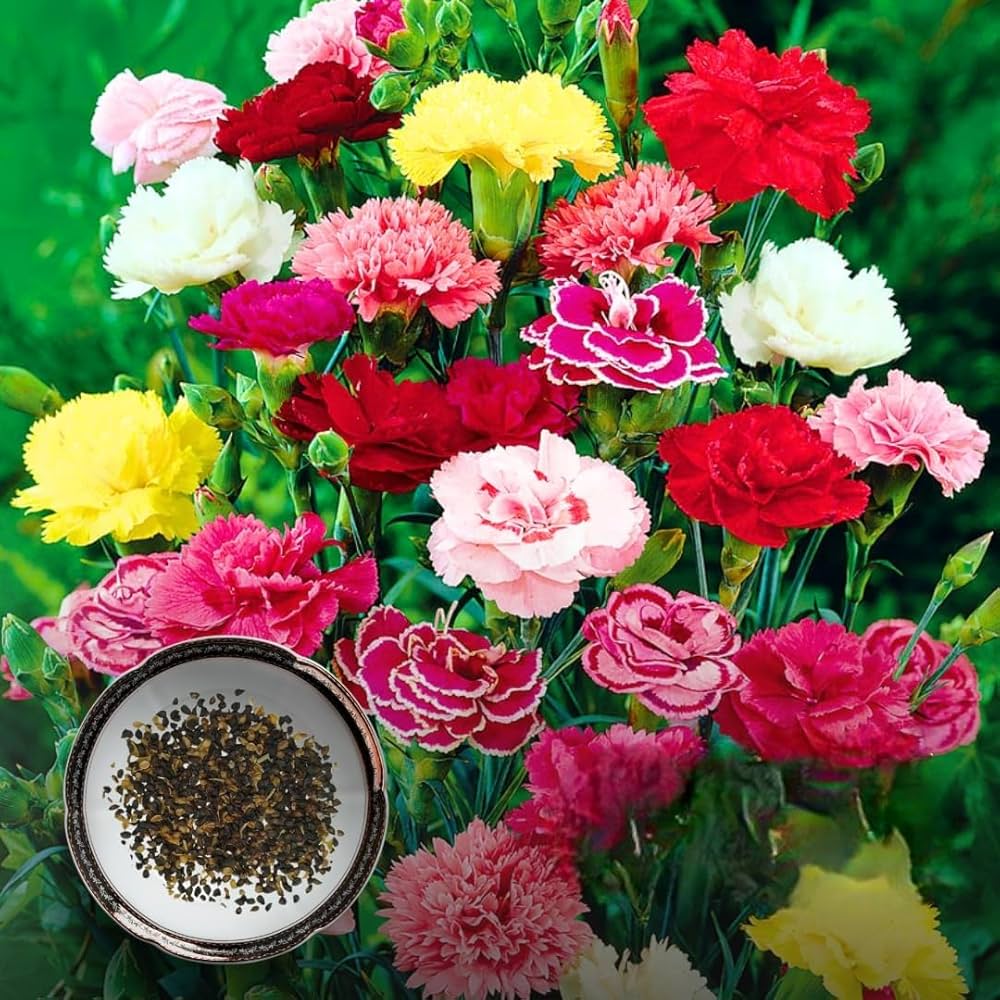Carnation Dianthus caryophyllus flower seeds for backyard garden and seasonal floral beds
Couldn't load pickup availability
Description
Carnation Seeds
Characteristics and Uses of Carnation Plants
Carnations are beloved flowering plants known for their ruffled petals and delightful fragrance, making them a popular choice for gardens and floral arrangements. Available in a wide range of colors, including pink, red, white, and yellow, these versatile flowers can bloom from spring through fall, providing continuous color and beauty. Carnations are often used in bouquets, as cut flowers, and in ornamental gardens, attracting pollinators and enhancing the overall aesthetic of any space. As a non-GMO option, these seeds are perfect for gardeners who appreciate natural growing practices and wish to cultivate these charming flowers in their own gardens.
Growing Conditions for Carnation Plants
- Soil Type: Prefers well-draining, fertile soil enriched with organic matter.
- Sunlight: Thrives in full sun, requiring at least 6-8 hours of direct sunlight daily.
- Temperature: Best suited for temperate climates, ideally between 60°F and 70°F for optimal growth.
Planting Tips for Carnations
- Seed Preparation: Soak seeds in water for 24 hours before planting to enhance germination.
- Planting Depth: Sow seeds at a depth of about 1/4 inch in well-prepared soil.
- Spacing: Space plants 12-18 inches apart to allow for proper growth and air circulation.
Watering Instructions and Tips
- Initial Watering: Water thoroughly after planting to establish strong roots.
- Ongoing Care: Keep the soil consistently moist but not waterlogged; allow the top inch of soil to dry out between waterings.
- Mulching: Apply a layer of mulch around the base to retain moisture and suppress weeds.
Growing Zones
Carnation plants are suitable for USDA zones 3-10 and can thrive in global zones with similar conditions, making them a versatile choice for many gardeners.
Key Benefits & Uses
- Non-GMO seeds ensure a natural growing experience.
- Produces beautiful flowers that enhance the visual appeal of gardens and attract beneficial pollinators.
- Easy to grow, making it suitable for gardeners of all skill levels.
Best Uses in the Garden & Landscape
- Ideal for flower beds, providing a stunning focal point with their vibrant blooms.
- Great for borders and edging, adding a charming touch to pathways and garden borders.
- Can be used in mixed plantings, contributing to a diverse and visually interesting garden design.
Conclusion
Choosing Carnation seeds from bijaseeds means investing in a beautiful and resilient plant that enhances your garden's aesthetic and ecological value. As a big, trusted name in the seed world, bijaseeds offers a wide range of high-quality, non-GMO varieties to gardeners everywhere.
FAQ
How do I grow Carnations from seeds?
To grow Carnations from seeds, soak the seeds in water for 24 hours before planting. Sow them at a depth of 1/4 inch in well-draining soil and water thoroughly after planting.
When is the best time to plant Carnation seeds?
The best time to plant Carnation seeds is in the spring after the last frost date, as they thrive in warmer temperatures and will grow actively during the growing season.
Are Carnation plants difficult to grow?
Carnation plants are relatively easy to grow, making them suitable for gardeners of all levels. With proper care regarding sunlight, soil, and watering, these plants can thrive and provide stunning blooms throughout the growing season.



